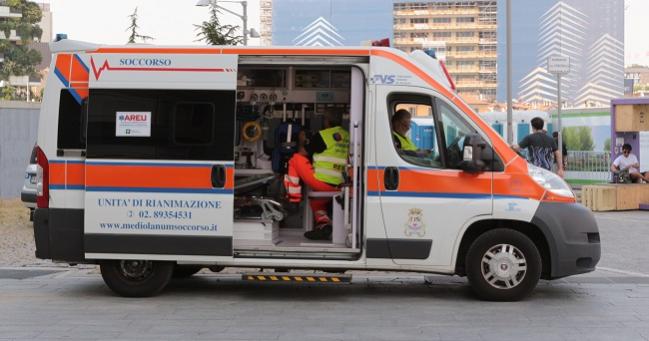‘Weekend Effect’ Still a Reality for ACS Patients in Italy
Men and younger adults were particularly at risk of dying when admitted on Saturday or Sunday, researchers found.

Despite advances in care, patients with ACS are still more likely to die when they are admitted to the hospital on a Saturday or Sunday rather than on a weekday, according to new data from Italy presented last weekend at the Acute Cardiovascular Care 2018 meeting in Milan. What’s more, it appears that younger patients and men are most at risk of experiencing the “weekend effect.”
Lead author Giovanni Malanchini, MD (University of Milan, Italy), told TCTMD that in Italy as a whole and especially in the Lombardy region, where the study was conducted, much work has been done in recent years to make primary PCI available on demand within 30 minutes. And so it had been hoped the disparate outcomes seen between weekend and weekday admissions would be a thing of the past.
However, he said, the current data “tell us that this is not sufficient,” perhaps because “almost 50% of STEMI patients did not call and activate fast-track transportation through the 118 emergency system, but [instead] reached the hospital on their own.”
Malanchini and his co-investigators retrieved data on 80,391 ACS admissions—of which 42.2% were for STEMI, 36.8% for NSTEMI, and 21.0% for unstable angina—to National Healthcare System hospitals in Lombardy, Italy, between 2010 and 2014. Patients had an average age of 67 years, and 70% were men.
Always keep in mind that, in the field of acute ischemic heart disease, doing the best is not enough. We must do it fast. Giovanni Malanchini
In-hospital mortality was 3.05% overall, with a higher risk of death seen for patients admitted on the weekend versus a weekday (OR 1.13; 95% CI 1.03-1.24). Men had a 15% lower risk of dying than did women. Yet timing seemed to matter more for men, who saw a 15% increase in risk when they were admitted during the weekend; women, on the other hand, saw their risk rise by 11%.
Age also appeared to alter the equation. The excess risk imparted by being hospitalized on a Saturday or Sunday was lowest in patients older than 75 (OR 1.05) and, in an inverse relationship, grew progressively larger among younger and younger patients. Among those below the age of 45, in-hospital mortality was twofold higher for weekend versus weekday admission (OR 2.09).
Cardiologists can take steps to minimize the “weekend effect,” Malanchini said in an email. “We should apply basic diagnostic protocol as fast as we can during the entire week, trying to reduce time from symptoms to treatment [no matter the day].” Emphasizing the importance of getting an ECG within 10 minutes of emergency department arrival in high-risk patients and those with chest pain, he stressed: “Always keep in mind that, in the field of acute ischemic heart disease, doing the best is not enough. We must do it fast.”
In a press release, Malanchini and colleagues acknowledge they didn’t dig for reasons why weekends were so risky, though they speculate that delays in perfusion could be to blame.
As for why age and sex might have influenced the relationship between timing and mortality, the researchers suggest a few explanations. Younger patients, for example, are typically experiencing their first coronary event and aren’t on aspirin or drugs to lower cholesterol or blood pressure, they say. Women, who tend to present later to the hospital compared with men, might see the weekend-mortality link dampened in the context of their generally worse outcomes.
Caitlin E. Cox is Executive Editor of TCTMD and Associate Director, Editorial Content at the Cardiovascular Research Foundation. She produces the…
Read Full BioSources
Malanchini G. Higher mortality during weekend admission for acute coronary syndromes: still a matter of concern. Presented at: Acute Cardiovascular Care 2018. March 3, 2018. Milan, Italy.


Comments